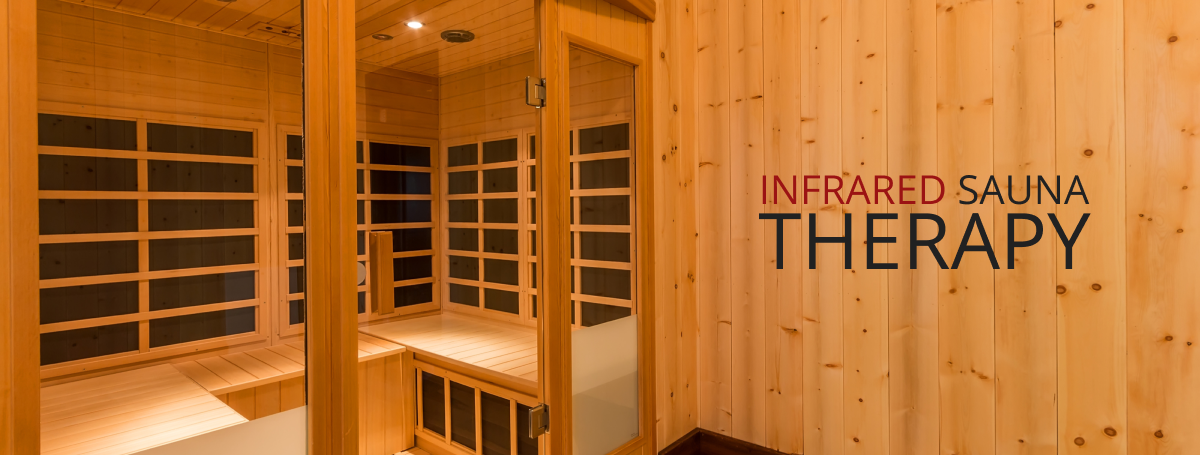- Menu
-
Infrared
- Hybrid
-
Traditional
-
Outdoor Sauna 101
- Heaters and Sauna Components
-
Blog
- Increasing stamina and endurance with infrared sauna
- Infrared sauna and bulking, building muscle
- Insulin sensitivity, prediabetes and infrared sauna
- All you need to know about Infrared Sauna Therapy
- How sauna helps against anxiety, stress, depression and cognitive impairment
- Losing weight with infrared sauna - definitive guide
- Sauna use for skin care
- Contact Us
UP TO 100% DISCOUNT DELIVERY IN USA

Everyone experiences stress, anxiety and most of us are familiar with some forms of depression which we may have encountered personally or know someone who did. Considering that depression is the most commonly diagnosed condition in the United States, it is a real problem in our society.
Some of us are also in danger of cognitive impairment conditions in later life such as Alzheimer's, Parkinson's and dementia. Considering the emotional and monetary costs of these conditions on individuals and their families, it is no wonder most of us fear this more than cancer or dying from a heart condition.
Considering the scientific findings, saunas including those that use infra-red therapy could be effective in helping us staying cognitively sound and mentally strong
Heat treatment though sauna use could alleviate numerous symptoms associated with stress, anxiety and even depression.
Sauna use itself has been linked with avoiding or postponing cognitive decline and even increasing longevity.
Continue reading to find our more about mental health issues and how sauna use helps against them.

One of the nicest side effects we were not expecting was the stress relief. This is very understated and undervalued benefit to the sauna. After a 30-minute session in my sauna, I come out of it feeling like a new man. I see many patients where stress is causing their health problems and we have started to add it to all of our stress management programs.
Dr. Michael Nowazek, BSC, ND President, Alberta Association of Naturopathic Practitioners (2000-2007).

Stress Relief and Far Infrared Sauna Therapy Stress seems to be so ingrained in our culture today. It is everywhere we turn; cell phones, deadlines, emotions, traffic and overbearing bosses - the list goes on and on. Stress has been linked to a heart disease, high blood pressure, diabetes, lowered immune function, depression, obesity, sleep disorders, increased Alzheimer's and premature death, just to name a few. When we are stressed, our body/mind takes a defensive "fight-or-flight" position. This is a natural response of the Autonomic Nervous System designed to take us away from dangerous situations when we are roaring the savannah, like a big Lion! However, we are NOT designed to stay in this “fight-or-flight" for very long. Unfortunately, most of us live like this day-to-day! And when this happens, a road to a “danger zone" begins…

When we remain in the stress response, the body wears down and our adrenal glands (responsible for our “fight-or-flight") start to malfunction. During stress (fight-or-flight) response, your body rushes all of its vital energy into the muscles to “protect" itself. The nervous system, the brain and organs are automatically depleted of this life force energy which helps them to heal and to sustain in optimal health. As a result, many highly and chronically stressed people often suffer with neurological, gastrointestinal, cardiovascular diseases, which then often result in heart attack or a stroke. Continuous output of dangerous stress hormones such as cortisol and epinephrine have also very damaging effect on the body over time. These hormones disrupt normal metabolism and function and are the main factors that causes the physiology cascade leading to the conditions listed above.

The remedy is to get into para-sympathetic (the other side of the autonomic) nervous system. This is the “rest and digest", or the “relaxation response". When you get into our infrared saunas the body is surrounded by our technologically advanced heaters. The infrared penetrates up to two inches into the body, causing vasodilation, muscle relaxation, pain relief and a feeling of well-being. Endorphins are released and the entire body relaxes. Repeated and regular infrared sauna use over several weeks will significantly reduce stress levels even when out of the sauna. Many people report improved sleep and a greater peace. When the body is stressed, chemical changes occur that result in unbalanced hormone levels.

Far infrared sauna therapy has been shown to normalize these levels thereby returning the body to a healthy state that rebalances both the mind and body. As stress is now recognized as one of the leading causes of disease, a far infrared sauna can be a perfect addition to any stress relief/stress management program. Enlighten far infrared saunas are the perfect way to relax and let life's pressures melt away in the soothing warmth, thus allowing the healing energy re-entering all sore and depleted areas of the body.
“YOUR BODY LOVES YOU, SO LOVE YOUR BODY BACK"

Saunas and hot baths have been popular among many cultures for hundreds of years even perhaps pre-dating the Romans, for whom public baths had been of major cultural significance. Bath complexes had been centres of leisure and an important venue for social cohesion. Many cultures today still retain their proud sauna traditions, most notably the Scandinavians and Finns in particular who have saunas even in their airports. Recently, with technological advances and rising popularity of saunas, many types of saunas have become affordable for everyone.
It has long been said that sauna use makes individuals feel good, lowering stress and reducing anxiety. Beyond the "feel good factor" there are other benefits as well. Considering the scientific findings, saunas such as infra-red present a worthy investment into the individual's physical and mental well-being for a multitude of reasons.
"We tap into this pathway because heat makes the brain feel happy."
Charles Raison PhD, University of Wisconsin-Madison
Why do we love saunas, why do we feel good in sauna and after?
Sauna as a relaxing retreat
First of all, a trip to the sauna is typically leisure time. It is enjoyable. A pleasant and a simultaneously healing activity. An infrared sauna, if anything, is a place for rest and relaxation. It is well known that a sauna is a great place to chill, to feel calm, to escape from the world outside for a short time.
This little getaway to enjoy some rest and relaxation is very beneficial not just for the body but also for the brain. A trip to an infrared sauna could potentially have a significant impact on the mental well-being of a person. Time spent in the tranquillity of a sauna is a simple way of helping your body and mind to cleanse.
The feeling that you get after leaving the sauna is typically described as "calm" and "pleasant". This feeling lasts for a short time, but according to studies it also offers long-term benefits. In addition, the feeling of control of how much you can turn the heat and when you leave helps relax, as opposed to being stuck in a desert with no water for example, in saunas you are in control.
Add to that good company and you have yourself a top-notch relaxing leisurely activity. When used in moderation, sauna is arguably entirely a pleasant and a healthy activity simultaneously.
Sauna as a form of thermotherapy
It feels good to be in the sauna because our bodies respond to the heat. We sense the temperature through the skin, which sends a signal to the hypothalamus, which in turn triggers the release of certain hormones that are associated with “feeling food”. As our breathing rate increases, so does our blood circulation and we feel a pleasant sensation similar to that of exercise.
Whilst in the sauna, your body will keep working, as if under physical stress, similar to exercise. This means that the heart will keep on pumping more blood to supply all of your cells to keep up with demand due to increased heat. This will require lungs to be more active, increasing oxygen intake to oxygenate blood. Increase in oxygen intake is associated with positive emotions.
How infrared sauna use benefits the entire body
Since the ancient times sauna use had been associated with boosting health rather than just a place to relax. Naturally, the scientific community began to investigate potential therapeutic benefits of sauna use for both mind and body. Extensive research into body thermoregulation and particularly human body's response to heat stress is still being investigated with promising results.
Many of the claims brought forward regarding the health benefits of sauna use had been confirmed by scientists. Some of the more recent research into the effects of heat treatment had pleasantly surprised even long time advocates of sauna use. Studies confirmed that sauna is a viable method of both prevention and treatment of different conditions.
As stated in the article in the Evidence Based Complementary Alternative Medicine "Regular infrared and/or Finnish sauna bathing has the potential to provide many beneficial health effects, especially for those with cardiovascular-related and rheumatological disease, as well as athletes seeking improved exercise performance (4).
Saunas use is good for the brain, it also helps against anxiety, stress and depression.
The same summary study have noted multiple psychological benefits
"The psychological impact of sauna bathing may be due to a combination of factors that include release of endorphins and other opioid-like peptides such as dynorphins forced mindfulness, psychological stress reduction, relaxation, improved sleep, time out from busy life schedules, placebo effects, and other aspects of individual psychological and social interactions that likely occur around frequent sauna activity. (4)"
Further studies psychology have found a significant amount of evidence to support the use of sauna for treatment of depression, even in the long-term (5).
Moreover, evidence is emerging to suggest sauna as a method for prevention of cognitive impairment conditions in later life such as dementia, Parkinson's and Alzheimer's.
Thermoregulation and body response to heat stress as a treatment
Infrared sauna and other activities that increase body temperature, such as exercise, chilling on a beach and consuming hot beverages do bring some universal benefits.
Humans have adapted to respond to the environment. Nerve endings in the skin sense the change in temperature and the rate of change and send a signal to the hypothalamus, which is an area of the brain which is responsible for maintenance of internal environment of the body. These signals initiate a response from the nervous system to prevent the core body temperature rising or falling to dangerous levels. This process is called thermoregulation.
The nervous system responds according to the signals it receives. For example when it is cold then we begin to shiver, our hair follicles rise. Blood vessels that would otherwise transport warm blood from the internal organs to the cold skin, where the blood would lose heat, constrict, constraining most blood, and its heat, to the internal organs.
Body response to rising and falling temperature
Cold: Shivering, hair follicles rising, blood drains away fromthe skin, vessels close to the cold skin constrict
Hot: Sweating, hair follicles falling, blood drains away from the internal organs, vessels close to the hot skin expand
In response to heat your heart starts to race, much like cardiovascular exercise. The heart rate increases to between 100 and 150 beats per minute (1). Among the benefits there is an increased plasma and blood flow to the heart which is beneficial for the cardiovascular system.
The brain is affected as well. More blood flow to the brain means that mood improves. Additional blood flow from exercise and sauna uses alleviates symptoms of certain conditions such as depression. Furthermore, research shows that raising the body temperature in a sauna can help against anxiety and can help counter stress. Regular use has been shown to be beneficial in the long term for cognitive health too. Studies that show the benefits of sauna use for brain function, having similar effects to those of physical activities such as exercise.
How similar is sauna use to exercise for psychological and physiological health
Exercise is the most suggested and proven way of improving one's health and the effect of exercise on the body is similar to that of a sauna visit.
Among the effects of exercise is an increase in body temperature, increased blood flow to the heart, increased heart rate and increased breathing frequency. However there is less stain on the muscles and joints from a sauna.
Considering that raising the body temperature happens both through exercise and through the use of saunas, are the effects comparable between the two methods?
According to a study published in Mayo clinic proceedings they are. As there are clear similarities between physical exercise and going to a sauna. However they are not the same. (2)
Lead researcher Dr. Jari Laukkanen stated in an interview to the NY Post that saunas aren’t a complete substitute for physical workouts. “The combination of good fitness and regular sauna use is related to a lowered risk of diseases,” he says. “Sauna is good after [the] gym or aerobic exercise … I do it normally, almost every evening!” (3)
It is not only scientists who advise to combine the exercise and sauna
"I do yoga every morning, then I run for half an hour and take a sauna."
Antonio Banderas
Does sauna use relieve of anxiety and stress?
How sauna helps against anxiety
Using a sauna such as infrared could help relieve anxiety. There are psychological and physiological reasons for it.
Anxiety can be defined as a feeling of worry, often about something one has no control over, it can also mean restlessness and unease. Generally anxiety is caused by an individual's response to uncertainty over something. Anxiety may interfere with an individual's life and can lead to further stress.
This feeling of anxiety is familiar to almost everyone but there are conditions where this feeling is constant. Some people experience anxiety daily, others barely know the meaning of it at all. In any case, saunas may be a suitable intervention to the feeling of anxiety for several reasons:
- A trip to the sauna is a getaway. For ten minutes or half an hour you get to escape from your troubles, fortunately the heat is the only thing you can really think about in the sauna. It is a worthy distraction from everything else in life for the time you spend there.
- This distraction is an opportunity for the brain to work on something other than the things causing anxiety. Often the time spent in the sauna is enough to escape the thought loop that causes anxiety in the first place.
- You have absolute control over the time you spend in the sauna, you can leave at any time, this degree of control over the immediate heat stress is liberating.
- After leaving the sauna you may be able to look at the things troubling you in a new light, from a new angle and therefore more objectively, perhaps leading to a better resolution.
- The increased air intake due to heat will make you feel happier, similar to the feeling you get after exercise.
- Increased heart rate and increased blood circulation will allow for more resources to the brain, which may help you make a better decision.
Overall, anxiety is a reasonable reaction to something troubling, but it may get out of hand. A trip to the sauna may be the intervention you need. As an opportunity to escape from the thought loop that causes worry. Therefore sauna can relieve some anxiety.
Does infrared sauna help overcome stress?
Stress is similar to anxiety in the way that it is also a feeling of emotional strain, the feeling of anxiety and stress obviously overlap. However, stress is also a state of mental and physical strain from demanding or exhausting circumstances.
Common physiological symptoms of stress: chronic fatigue, headaches, digestion problems, frequent colds and infections, decrease in sexual performance and eating disorders.
Common psychological symptoms of stress: lack of concentration, mood swings, irritability, memory problems, lack of sexual desire, anxiety, depression and insomnia.
There are a lot of symptoms of stress, some physiological some psychological, they tend to be vague.
As it was mentioned above, sauna helps overcome anxiety, at least in the short term. Some studies suggest that sauna visits may help alleviate some of the symptoms of stress as well, in particular insomnia, it also helps against frequent colds and infections and through increased blood flow to the brain it can also help tackle headaches.
When it comes to psychological symptoms they are more difficult to take on. However, having a similar benefit to that of exercise, through increased blood flow and through the release of stress countering hormones such as serotonin (4) a sauna can help even against chronic depression which has similar symptoms.
Saunas in top hotels to help against stress
It is not just regular people who find the whole sauna experience beneficial.
For decades the top hotel chains have been investing heavily into providing the best sauna experience. Whilst initially this may have been just another gimmick to attract customers, it is now recognised that saunas do improve the mood and help people relax, adding to an overall experience.
Treating depression with sauna use
Depression is one of the most common diagnosed conditions in North America and it is no wonder that people are looking for unconventional treatments for it. However, unlike the widely prescribed medicine in form of pills, heat therapy is more natural. Moreover, in regions where sauna use is widespread such as Nordic countries, depression as a condition is far less common.
Since the sauna appears to be a leisurely activity that is available to almost everyone now, scientists have started looking at hyperthermia (heat) therapy for body and mind.
Charles Raison, from the lead researcher in the University of Wisconsin-Madison thinks that heat makes the brain feel happy. He joined forces with other researchers to investigate the effect of heat on the human body in a recent study. The study looked at the effects of whole body hyperthermia (heat stress) on the patients with chronic depression.
In a double-blind study, some of the patients, the control group were exposed to a placebo-like machine that simulated the look and feel of a gadget that would make people feel heated. Another group was subjected to a real increase in whole body temperature through the use of a similar gadget.
Researchers were astnoished by the results Scientists evaluated depressed volunteers on the Hamilton Depression Rating Scale (HDRS) and found that 60 percent of them had a response and 40 percent met the criteria for remission of depression during at least one assessment after having received the treatment.
Researchers concluded the following:
"Results from the current study suggest that WBH holds promise as a safe, rapid-acting, antidepressant modality with a prolonged therapeutic benefit. Future studies will be required to identify both the optimal temperature and number and timing of treatments likely to produce the largest and longest-lasting clinical response in most patients." (5)
Considering other benefits offered by sauna-like therapy, it is possible to establish therapy and sauna interventions as a first line of defence in prevention and treatment of depression.
Sauna use as a preventative measure against cognitive impairment conditions such as dementia and Alzheimer's
Dementia and Alzheimer's are becoming more widespread in aging populations and medical professionals are looking at what causes these conditions to occur. Scientists are also researching what prevents development of Alzheimer's in potential patients and they try to pinpoint the exact genes and exact lifestyle that is associated with cognitive impairment.
Lifestyle has been heavily associated with dementia, Alzheimer's and Parkinson's, recent studies have found that aging soccer players in the United Kingdom, were three and a half times more likely to suffer and die from dementia than the general population (6). Whilst trauma to the head from heading footballs is rare in the general population there is clearly a whole range of environmental factors that can be associated with dementia and similar cognitive impairment.
Likewise, external heat such as sauna use is also an environmental factor but it has been found to be beneficial.
To find patterns that may pinpoint what causes or prevents mental illness researchers resort to longitudinal studies. One study published in 2016 at the University of Eastern Finland found that sauna may act as a preventative treatment against dementia. This study oversaw an evaluation of 2315 men's lifestyles and found that men who frequented sauna were at lower risk of dementia and Alzheimer's disease. This was a first-of-its-kind study and more will follow. Furthermore, moderate to high frequency sauna experience was the most likely to correlate inversely with risk of developing cognitive impairment disease. (7)
It isn't clear what causes saunas to be beneficial but further research is ongoing.
Conclusion
Saunas have been shown to be beneficial to both physiological and psychological well-being of an individual
Saunas, infrared saunas in particular which resemble the Finnish dry sauna appear to be a promising intervention and treatment tool to counter a multitude of maladies.
Considering the sauna's similarity to exercise in the way it triggers the body to heat up, it is not surprising that our bodies appear to like the heat as researchers claimed.
Moreover, there are also some upcoming research in the works that looks at how sauna use affects longevity, in rats and mice.
Overall, it can be said that saunas are not just fun, not just a relaxing retreat but they can also be considered as a great mechanism to prevent some widespread diseases and to treat others.
References
1. University of Eastern Finland. "Scientists uncover why sauna bathing is good for your health." ScienceDaily. ScienceDaily, 5 January 2018. www.sciencedaily.com/releases/2018/01/180105124005.htm
2. Cardiovascular and Other Health Benefits of Sauna Bathing: A Review of the Evidence
Laukkanen, Jari A. et al.
Mayo Clinic Proceedings, Volume 93, Issue 8, 1111 - 1121
https://www.mayoclinicproceedings.org/action/showCitFormats?pii=S0025-6196%2818%2930275-1&doi=10.1016%2Fj.mayocp.2018.04.008
3. Harvard Men's Health Watch
Sauna Health Benefits: Are saunas healthy or harmful?
https://nypost.com/2018/09/10/sitting-in-a-sauna-might-be-just-as-productive-as-cardio/
4. Hussain J, Cohen M. Clinical Effects of Regular Dry Sauna Bathing: A Systematic Review. Evid Based Complement Alternat Med. 2018;2018:1857413. Published 2018 Apr 24. doi:10.1155/2018/1857413
https://www.ncbi.nlm.nih.gov/pmc/articles/PMC5941775/
5. Janssen CW, Lowry CA, Mehl MR, et al. Whole-Body Hyperthermia for the Treatment of Major Depressive Disorder: A Randomized Clinical Trial. JAMA Psychiatry. 2016;73(8):789–795.
https://jamanetwork.com/journals/jamapsychiatry/fullarticle/2521478
6. BBC Publishing. Dementia in football: Ex-players three and a half times more likely to die of condition.
https://www.bbc.com/sport/football/50124102
7. Tanjaniina Laukkanen, Setor Kunutsor, Jussi Kauhanen, Jari Antero Laukkanen, Sauna bathing is inversely associated with dementia and Alzheimer's disease in middle-aged Finnish men, Age and Ageing, Volume 46, Issue 2, March 2017, Pages 245–249, https://doi.org/10.1093/ageing/afw212
http://ageing.oxfordjournals.org/content/early/2016/12/07/ageing.afw212.abstract
Other articles






